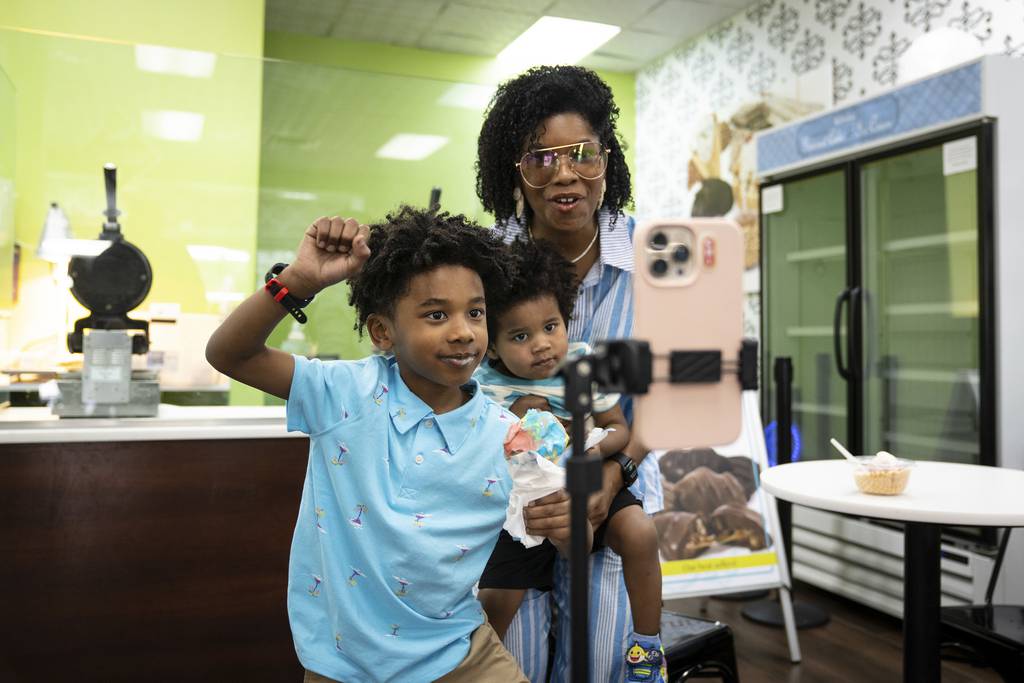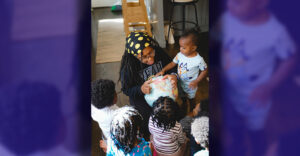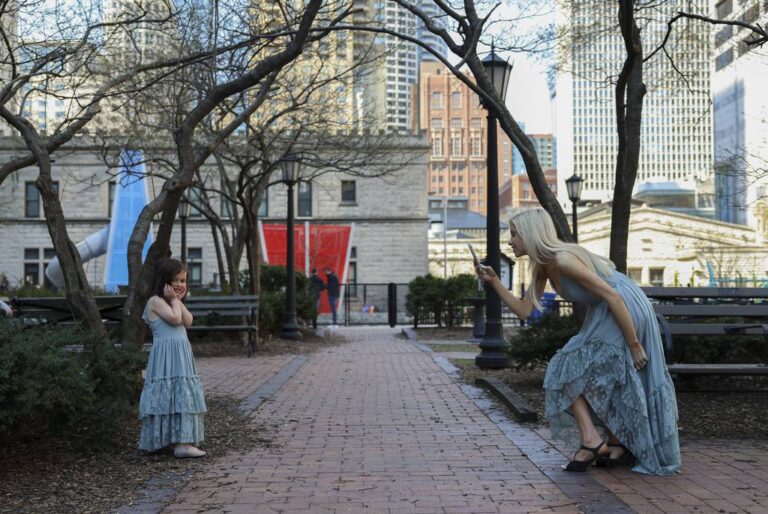Shreya Nallamothu was scrolling through TikTok the summer before her freshman year of high school when she started to notice how much content featured children performing in professionally produced family videos, or “vlogs.”
“At first, I didn’t think much of it,” Nallamothu, now 15, told the Tribune. But as the content kept populating her YouTube, TikTok, Instagram and Facebook pages, she began to research the laws concerning children in the vlogging industry and “learned that there is often a lot of exploitation that can happen in situations like this and there is no legislation in place to protect them.”
Nallamothu became a catalyst behind state legislation that would set a rate for how much someone under 16 is compensated when they appear in at least 30% of a channel’s vlogs — defined in the legislation as monetized video content.
The bill, which was passed unanimously by the Senate and is now before the House, would require that a minimum of half a video’s earnings, prorated based on the amount of time the person under 16 appears, be set aside in an account that is accessible only to the child when they turn 18. So, if a video made $100 and a minor was in half of the video, then that minor would be paid at least $25 for their work. If there are multiple children in the program, they would share the money evenly.
“It’s important for us to set the ground rules for how this should be done,” Sen. David Koehler, a Peoria Democrat who is sponsoring the legislation. “It’s perfectly fine if parents want to do this and it’s done in a very wholesome and respectable way. If the children are used simply as a cash cow to enrich them …then I think that begins to strain this.”
:quality(70)/cloudfront-us-east-1.images.arcpublishing.com/tronc/ESLEZVTWBZDB5LSREVUNX3HDN4.jpg)
(Shreya Nallamothu)
The influencing industry is massive, with some estimates showing it brings in over $15 billion annually. Two of the top 10 highest-earning YouTubers were children under 18, according to a January 2022 report in Forbes. One personality that is frequently on Forbes’ top earners list is Ryan Kaji, star of the Ryan’s Toys channel, which started when his parents began filming him at 3 years old and, according to Forbes, in 2021 had more than 33 million subscribers and earned more than $25 million.
As Nallamothu started to dig into the issue of child video compensation, she asked her favorite teacher at University High School in Bloomington if she could do an independent study on the topic and began the process of creating a cogent policy memo to pitch to lawmakers.
“The first probably couple of months was just research,” Morgan Schmidt, the history teacher who oversaw Nallamothu’s independent study, said. “And then it started to take shape of ‘OK, I found certain things,’ more specific research, and then by December she was already reaching out to assemblymen in Illinois … seeking out people to take on this bill.”
Nallamothu, who worked with a group called Quit Clicking Kids to craft potential legislation, said she reached out to over a dozen state senators before Koehler, whose district includes her home, decided to look into her research and then drafted a bill.
Protection of children in these circumstances is usually viewed through two lenses: compensation for hours worked and protection of the child’s control over videos they are in once they become of age. While the first is relatively straightforward to legislate, the second can be more difficult.
Washington state is trying to pass a bill that would accomplish both objectives. But the legislation is stalled, meaning that if the Illinois legislation makes it to Gov. J.B. Pritzker’s desk it would be the first of its kind in the nation to enforce this level of compensation for child vloggers, Koehler said.
An Illinois woman who says she experienced trauma having events of her childhood vlogged by adults — including her first period, illnesses and the aftermath of a car crash — testified in support of the Washington bill in February.
“Because the digital footprint I had no control over exists, when you Google my name, simply just my first name, childhood photos of me in bikinis will pop up,” the woman, who used an alias, told state legislators. “I’m terrified to have those weaponized against me again.”
The Washington bill would have allowed people who were part of vlogs as children to remove that content when they turned 18. Nallamothu wanted a similar clause in the Illinois bill, but said it “ended up being taken out with the first amendment just due to the feasibility.”
Koehler said that while he hopes to revisit this part of the bill, employees at Meta (formerly Facebook) met with him and expressed the “fair point” that scrubbing vlogging content from the internet is impossible at times.
Jenny LeFlore, a full-time content creator in Chicago who provides online parenting recommendations, is supportive of the bill but sees flaws in some aspects of it.
She takes issue with the bill’s definition of “vlog” as “content shared on an online platform in exchange for compensation” and “vlogger” anyone who produces compensated video content, language she finds overly broad.
But LeFlore’s main problem is a requirement that channel owners closely document the time stamps for which their children are present on a vlog to ensure the children are allotted their proper payment.
“I think that is setting up people to fail because I think that is hard to really quantify,” she said.
Jennifer Lane, who is a “fashion, beauty and motherhood content creator” with over 150,000 followers on Instagram, has similar concerns as she tries to figure out how to share earnings with her daughter.
“I do a lot of content on my own and then some of my content is with her,” Lane said. “So just kind of keeping track of what she’s in, how much she’s in of that video or of that post or the content, and just kind of keeping track of everything.”
Koehler said that he feels the time stamp requirements are necessary and fair.
“It’s not that tough anymore to be able to timestamp something, but you have to have some kind of way of measuring this if it’s going to be effective at all,” Koehler said.
LeFlore said that her son receives an “industry standard” $85 an hour for sponsored content where his appearance is requested. She puts the money in a protected trust fund.
LeFlore said she supports how the bill would require her son to be paid a portion of the total earnings rather than his own rate, even though it will shift the industry in Illinois significantly. The biggest adjustment would be in the negotiation rooms with advertisers, she said.
“It’s going to change the business side, obviously taxes. But it’s also going to change the conversation between creator and brand because creators are going start demanding more money if brands want kids to be a part of any of the videos,” she said.
Child and family vlogging is rife with controversy. Questions around the ethics of both promoting content toward kid viewers as well as documenting minors that at times cannot legally consent are part and parcel of the industry.

Many popular channels have also been publicly shamed. One family vlogger had to respond to criticism when they filmed the process of adopting and raising a young boy but then placed the child back up for adoption a few years later.
Nallamothu, who testified in front of the Senate Labor Committee said this bill is less about preventing bad actors and more about putting up standards for the industry.
“One of my worries with this is that people will take it as ‘They are my kid, you honestly think I am endangering them?” she said. “But this is more of like a protective measure.”
Concerns that the entire social media industry is underregulated are especially acute where children are involved.
“I realized that there are lots of calls to action, but there is no legislation in place that would protect this in any of the 50 states,” Nallamothu said. “So at this point, I’m kind of like, ‘OK, we have to start somewhere in one state, we have to put something in the books because this is such an unregulated field.’”






